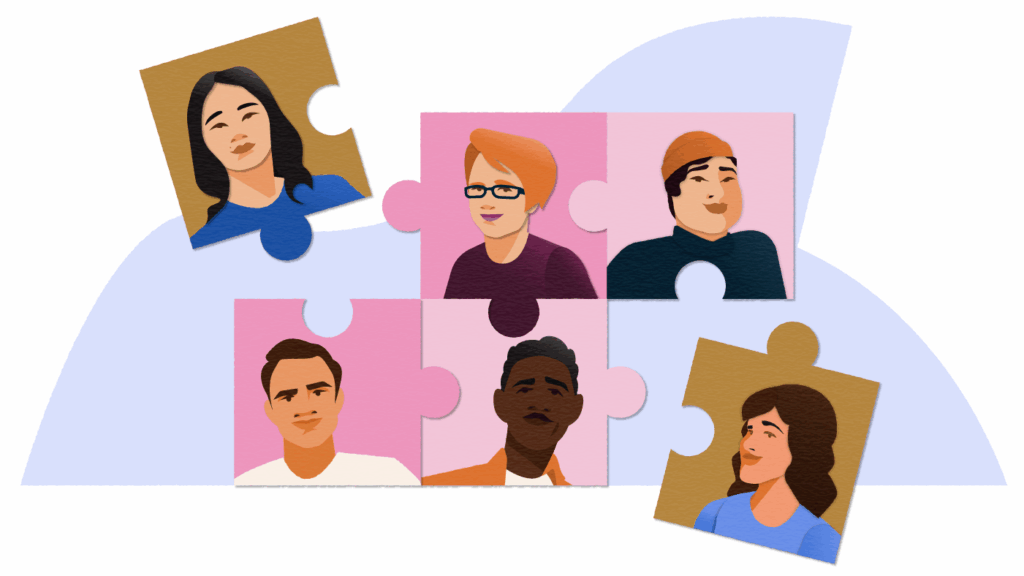Step-by-Step Guide to Solving Logical Challenges Easily

Unlocking the Secrets of Logical Challenges
Every day, we encounter various logical challenges that test our reasoning abilities. These challenges hearten cognitive growth, encouraging us to think outside the box while sharpening our analytical skills. They range from simple puzzles, like Sudoku or crosswords, to complex logical riddles that challenge our patterns of thought and reasoning.
Engaging regularly with these tasks can significantly enhance our cognitive faculties. For instance, consider brain teasers such as the classic: “A man is pushing his car along a road when he comes to a hotel. He shouts, ‘I’m bankrupt!’ Why?” Solving such riddles requires not just lateral thinking but also a keen grasp of context and narrative—elements that are often overlooked. Investigating the reasoning behind solutions can lead to deeper insights into how we construct and deconstruct scenarios in our minds.
In this guide, we’ll explore:
- Key strategies for approaching different types of logical problems;
- Common pitfalls to avoid while solving challenges;
- Interactive examples to practice your skills effectively;
- Tips and tricks from seasoned logicians.
Understanding the foundational principles of logic not only makes these challenges easier to solve but also sharpens your critical thinking. For instance, recognizing logical fallacies—such as ad hominem attacks or straw man arguments—can be crucial when dissecting complex arguments in debates or persuasive writing. This awareness cultivates clearer reasoning and helps prevent you from being swayed by flawed logic.
Moreover, logical reasoning is a valuable skill, whether in academic settings, the workplace, or daily life. In the realm of business, for example, analytical skills enhance decision-making processes, enabling professionals to assess risks and opportunities with greater clarity. Students often find that logic puzzles help in preparing for standardized tests like the SAT, where critical reasoning plays a pivotal role in scoring.


As we delve deeper, you’ll discover that solving logical challenges can be both fun and rewarding. For instance, online platforms like Lumosity offer games specifically designed to enhance logical reasoning skills. Engaging with these platforms not only provides practice but also tracks your progress over time, making it effortless to witness your improvement.
So, get ready to unlock your cognitive potential and become a pro at navigating through complex problems with ease! Logical challenges are not just tests of wit, but invitations to explore the maze of human reasoning and problem-solving head-on. Embrace the challenge and let the journey sharpen your mind and enrich your intellectual toolkit!
SEE ALSO: Click here to read another article
Essential Strategies for Tackling Logical Challenges
When it comes to solving logical challenges, having a toolkit of effective strategies can make all the difference. Whether you’re facing a mind-bending puzzle or a complex reasoning problem, following a structured approach can streamline your thought process and lead you to the solution more quickly. To get started, it’s crucial to familiarize yourself with several key strategies that can be applied across various types of logical challenges.
1. Analyze the Problem
The first step to solving any logical challenge is to thoroughly analyze the problem. Take a moment to read the challenge carefully, paying close attention to all the details provided. Often, logical puzzles include subtle clues that can guide your reasoning. Try to identify the main components of the problem, such as characters, relationships, or any specific constraints that apply. Creating a mental map or writing down important information can also be beneficial.
2. Break It Down
After you’ve analyzed the problem, it’s time to break it down into smaller, more manageable pieces. Identify individual elements of the challenge and consider how they interact with one another. For a puzzle that requires sequencing decisions or events, diagramming relationships can clarify complex situations. This approach allows you to focus on one aspect at a time, reducing overwhelm and increasing clarity in your thought process.
3. Use Logic and Deduction
Using logic and deduction is at the heart of solving logical challenges. Applying deductive reasoning involves drawing conclusions based on the premises given in the problem. Start by identifying what you know for certain and what can be inferred from that information. Look for contradictions or confirmations within the details to help arrive at conclusions. Utilizing techniques such as a truth table or Venn diagram can also enhance your deducing capabilities.
4. Consider Various Perspectives
When facing a logical challenge, it can be advantageous to consider various perspectives. Approach the problem from different angles to avoid getting stuck in a single line of reasoning. Ask yourself what would happen if certain variables changed or if you looked at the scenario from another character’s point of view. This method of lateral thinking can often illuminate solutions that weren’t initially apparent, leading you closer to the answer.
5. Practice Regularly
Practice truly does make perfect, especially when it comes to logical reasoning skills. To hone your abilities, tackle a variety of logical challenges regularly. Participating in online games or engaging with puzzle books designed for cognitive sharpening can expose you to different problem types and enhance your flexibility in thinking. Over time, these consistent efforts will bolster your confidence and speed in solving logical problems.
- Use analytical skills to dissect complex scenarios.
- Practice breaking problems into smaller parts.
- Apply logic and deduction methods consistently.
- Consider different perspectives for broader insights.
- Commit to regular practice to sharpen your skills.
Equipped with these strategies, you’re well on your way to tackling logical challenges with ease. As we continue through this guide, you’ll discover more tips and tricks to further enhance your logical reasoning capabilities, transforming what might once have seemed daunting into an exciting mental exercise.
| Category | Key Features |
|---|---|
| Structured Approach | Utilizes a systematic method to tackle challenges, breaking them down into manageable parts. |
| Enhanced Problem-Solving Skills | Promotes critical thinking and logical reasoning, essential for addressing complex issues in daily life. |
| Resource Accessibility | Provides access to various strategies and tools that can be easily applied to various scenarios. |
| Interactive Learning | Engages users through interactive challenges that enhance retention and application of methods. |
Delving deeper into the world of logical challenges, this guide offers intriguing insights into the methodologies that can significantly improve one’s ability to navigate problems effectively. Such structured approaches make it easier to deconstruct complex puzzles into simpler components, which is essential for fostering logical thought processes. Moreover, enhancing problem-solving skills is an invaluable asset; the ability to think critically and logically can revolutionize how one tackles ordinary tasks, providing a competitive edge in both personal and professional domains. Furthermore, resources that offer step-by-step methodologies encourage accessibility to various tools, ensuring that anyone can embark on this journey to enhance their reasoning capabilities. Interactive learning modules are particularly noteworthy, as they engage users actively, transforming arduous tasks into enjoyable challenges. By exploring these components in detail, you’ll uncover a wealth of information designed to revolutionize your approach to logical dilemmas.
SEE ALSO: Click here to read another article
Advanced Techniques for Enhanced Problem Solving
As you get comfortable with the fundamental strategies for tackling logical challenges, it’s time to explore some advanced techniques that can significantly elevate your problem-solving skills. These techniques delve deeper into the mechanics of logical reasoning, allowing you to approach even the most intricate puzzles with a strategic mindset.
1. Visual Representation
A powerful technique in solving logical challenges is utilizing visual representation. Many individuals find that creating visual aids such as graphs, charts, or flow diagrams can simplify intricate relationships and illustrate connections between various elements. For instance, when deciphering a complex seating arrangement puzzle, drawing a simple seating chart can provide clarity and guidance as you process the information. Visual representations not only make abstract ideas more concrete but also help in retaining important data as you work through the solution.
2. Work Backward
When confronted with particularly challenging problems, consider the work backward method. This approach entails starting with the desired outcome or conclusion and retracing the steps back to the initial premises or conditions. For example, if you must figure out how four friends can be seated such that specific conditions are met, envision how they might sit successfully and then analyze the necessary prior conditions. This reverse engineering technique often leads to breakthroughs in logic puzzles that feel particularly resistant to conventional forward reasoning.
3. Elimination Process
The elimination method is another incredibly useful strategy for demystifying logical challenges. By identifying what cannot possibly be true or viable, you narrow down the range of possible solutions. For instance, in a logic grid puzzle involving who lives where, listing who does not live in what house can immediately lead to definitive conclusions about the remaining options. This method not only reveals potential answers but can also expose contradictions, providing crucial insights into the logic of the scenario.
4. Collaborate with Others
Sometimes, two heads are better than one. Collaborating with others can offer fresh perspectives and insights that you may not consider on your own. Engage friends or family in discussions around the logical challenges you face, and encourage a brainstorming session. Sharing different viewpoints can generate new ideas and alternative strategies, enriching the problem-solving process. Not only does collaboration make solving puzzles more enjoyable, but it also often uncovers innovative solutions through collective reasoning.
5. Employing Logical Fallacies Awareness
Lastly, developing an awareness of logical fallacies can greatly enhance your problem-solving abilities. Understanding common fallacies, such as hasty generalizations or false dilemmas, allows you to refine your reasoning skills and avoid pitfalls during the deduction process. By recognizing flawed reasoning in a challenge, you can separate misleading elements from the core truth of the problem, ultimately guiding you toward more accurate solutions. This critical thinking ability is vital in both solving puzzles and making decisions in real-world situations.
- Use visual aids for better comprehension.
- Apply the work backward technique to simplify complex problems.
- Utilize the elimination process to narrow down possibilities.
- Engage with others to gain diverse insights and approaches.
- Be aware of logical fallacies to strengthen reasoning capabilities.
By integrating these advanced techniques into your problem-solving repertoire, you’ll find yourself equipped to tackle a wide array of logical challenges with newfound confidence. As we proceed, additional insights await that will further refine your approach and expand your logical reasoning toolkit.
SEE ALSO: Click here to read another article
Conclusion: Embracing the Art of Logical Reasoning
In the journey of mastering logical challenges, it’s essential to remember that becoming adept at problem-solving is a progressive endeavor. By gradually adopting both foundational and advanced strategies outlined in this guide, you can significantly enhance your logical reasoning skills. Each technique—be it visual representation, working backward, the elimination process, collaboration, or awareness of logical fallacies—serves a unique purpose in your toolkit, ensuring you approach challenges with both creativity and precision.
Moreover, engaging with a variety of puzzles will not only sharpen your analytical skills but can also lead to a deeper appreciation for the complexities of logic itself. Logical challenges can be more than mere pastimes; they are excellent exercises that foster critical thinking, decision-making abilities, and problem-analysis skills—attributes beneficial in both personal and professional spheres.
As you embrace these methodologies, reflect on your progress and the diverse ways in which these skills manifest in everyday life. The world of logical challenges is extensive and continuously evolving, inviting you to explore even deeper dimensions of reasoning. So, challenge yourself to tackle puzzles that push your limits and continue your quest for mastery in logical reasoning. Remember, with patience and practice, you can unravel even the most intricate challenges, paving the way for a more insightful and enriching experience in your logical pursuits.
Related posts:
Boost Logical Reasoning Skills with Practical Challenge Techniques
Boost Team Skills Use Logical Challenges in Group Training
Famous Logic Puzzles Examples Solutions Enhance Your Brain
Tips for Creating Personalized Logic Challenges at Home
Difference Between Mathematical Verbal Logic Challenges Explained
How Logical Challenges Boost Critical Thinking Skills Development

Beatriz Johnson is a seasoned puzzle enthusiast and writer with a passion for unraveling the complexities of mind games and brain teasers. With over a decade of experience in the world of puzzles, she specializes in topics like logic games, riddles, and strategic challenges. Through her work, Beatriz empowers readers to sharpen their problem-solving skills, think creatively, and stay engaged in the ever-evolving landscape of mind games and puzzles.